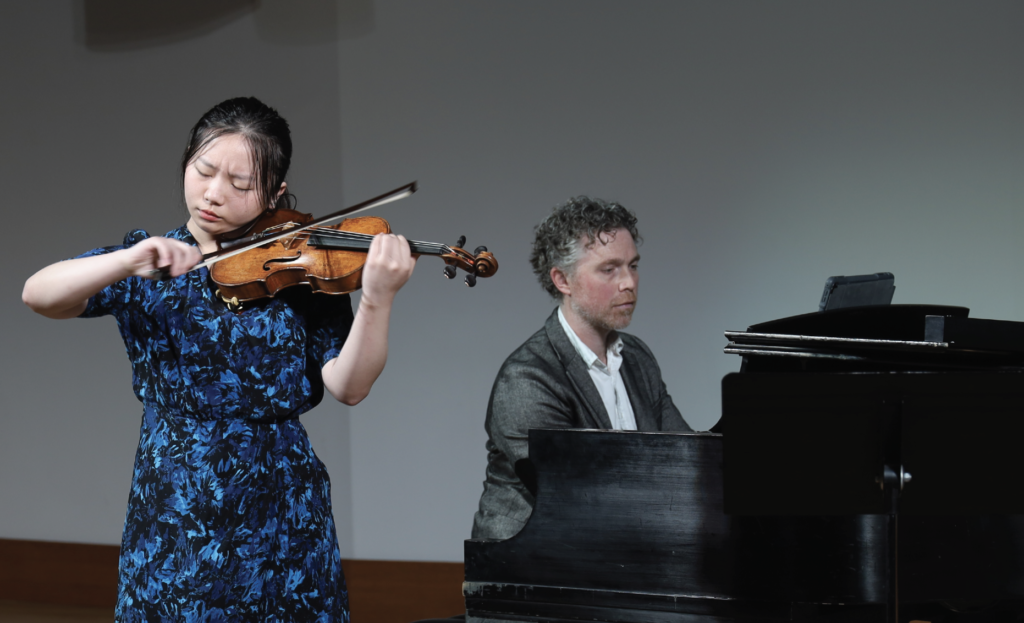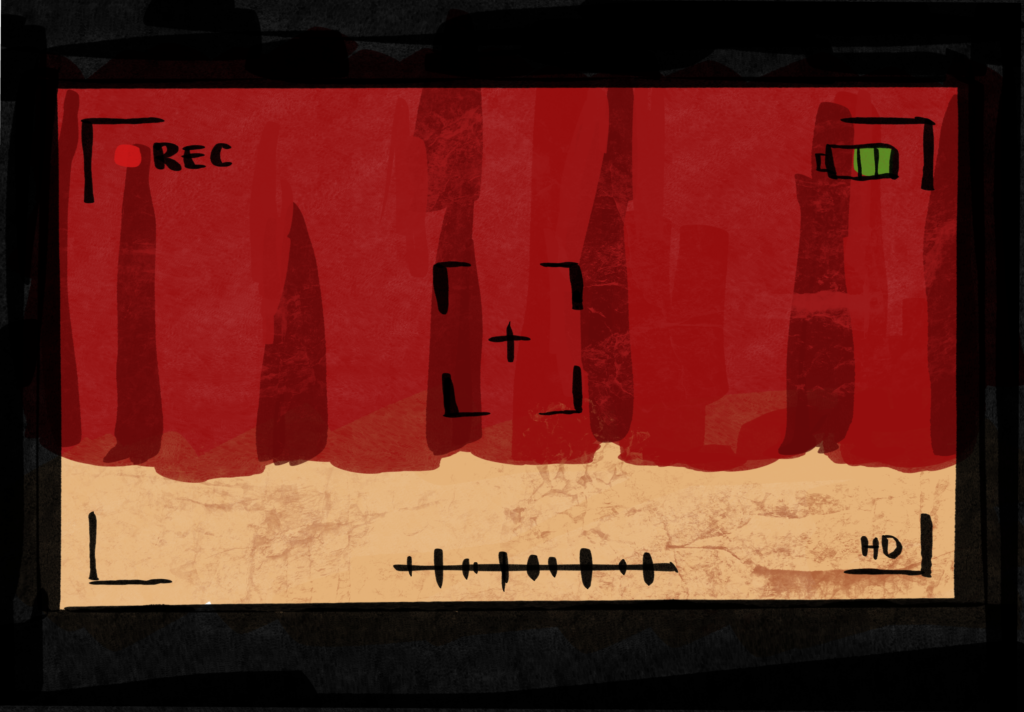
Photo by Sophia Kim ’24/The Choate News
Mr. Nathaniel Baker accompanies violinist Paloma So ’23 in the winter recital.
Each term, musicians perform pieces they’ve been practicing at a culminating recital. During the winter recitals held on February 19, students played their works accompanied by pianists Ms. Susan Cheng and Mr. Nathaniel Baker. These professional musicians on the piano bench play a crucial role in supporting students in their musical endeavors.
Ms. Susan Cheng has been a Choate piano teacher for over 15 years and a musician in the Wallingford Symphony Orchestra. She performed 12 pieces this term with string, woodwind, and brass instruments at the recital.
Mr. Nathaniel Baker has taught piano at Choate for almost seven years and helps direct the fall and spring musicals. At the winter recital, he played with four vocalists and four instrumentalists.
Each performance is a collaborative process between the student performer and the accompanist. Leanne Parks ’25, who sang with Mr. Baker in the fall recital, said, “Usually, for the first time through, we just do it the way we both learned it.” Then, they share and discuss their thoughts on tempo and rhythm. “We compromise and meet in the middle ground, so that way, I’m comfortable, and he doesn’t have to relearn the whole thing,” Parks said.
Ms. Cheng’s role in accompanying students on the piano depends significantly on their pieces’ composition. Some students perform concertos, in which musicians are typically backed by an entire orchestra. For those pieces, Ms. Cheng plays the piano reduction of the orchestral arrangement that covers the parts of different instruments.
“It sounds a lot better because otherwise, they’re just playing this one-line solo part,” She said. “It may be a very beautiful line, but it needs the harmonic support; it needs more instrumentation to make it fuller and sound better.”
The piano and soloist parts are more intertwined in chamber music, where the parts were written specifically for the two instruments. “When it’s written more like a cello sonata, where the piano has a big part, the two of them are almost more equal,” said Ms. Cheng. The interdependent nature of those pieces often results in a need for extra rehearsal time — a struggle considering the busy schedules of both students and faculty.
The process of working with a pianist becomes easier for students as they gain more experience. “Some of these students are really experienced because they’ve done a lot of these different competitions or auditions, and they’re used to having to just meet with a pianist for a rehearsal or two and just going with it,” said Ms. Cheng.
With extensive experience in both teaching and accompanying, Mr. Baker is well acquainted with the process of both. “I think a particular challenge of doing this at Choate is that you guys are all perfectionistic to a fault,” he said.
Considering the variety in both the levels of musicians and the difficulties of the pieces, students are commonly stressed. Baker tries to alleviate this anxiety while producing a good performance. He added, “Accompanying, I guess you could say, is more about, ‘How can I make them look good at the level they’re at right now?’”
Jason Cao ’25, a flute player in the Wind Ensemble, will be accompanied by Ms. Cheng at the winter recital. Having performed in a recital every term since his third-form year, Cao finds playing with a piano accompaniment easier when it comes to classical pieces, while it is more difficult with late romantic or modern pieces.
For many students, working with an accompanist is preferable to playing solo. “I do prefer playing with a pianist on a lot of these pieces because it also helps you learn about the harmony of the piece,” Cao said.
The mutual dependence between Cao and Ms. Cheng ultimately facilitates a higher-quality performance. Cao shared, “It’s a really beneficial experience for your audience. You have to be more on tempo, and you have to be clear with your phrasing with cuing the pianist, which I think is a valuable skill for a musician.”




